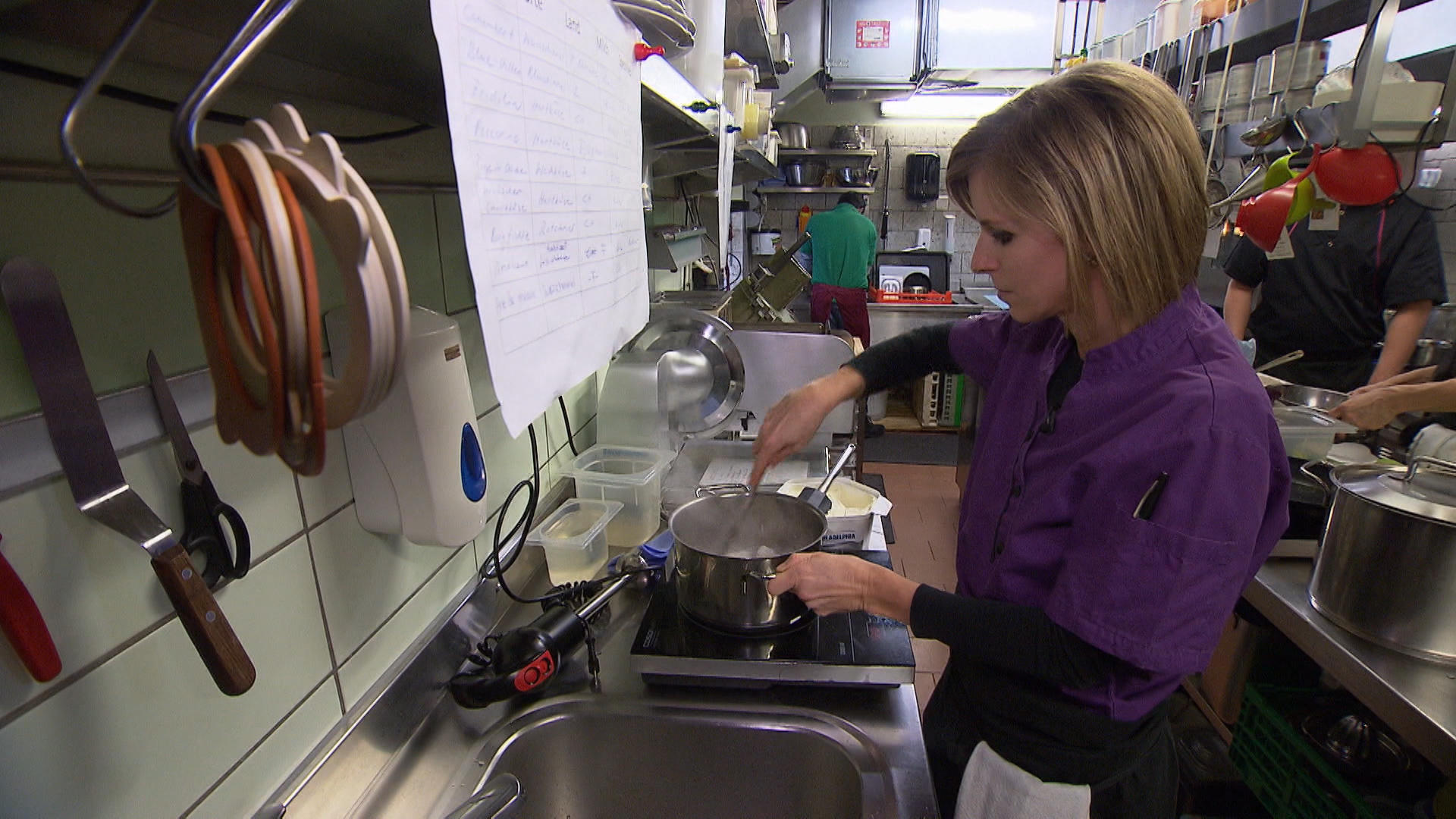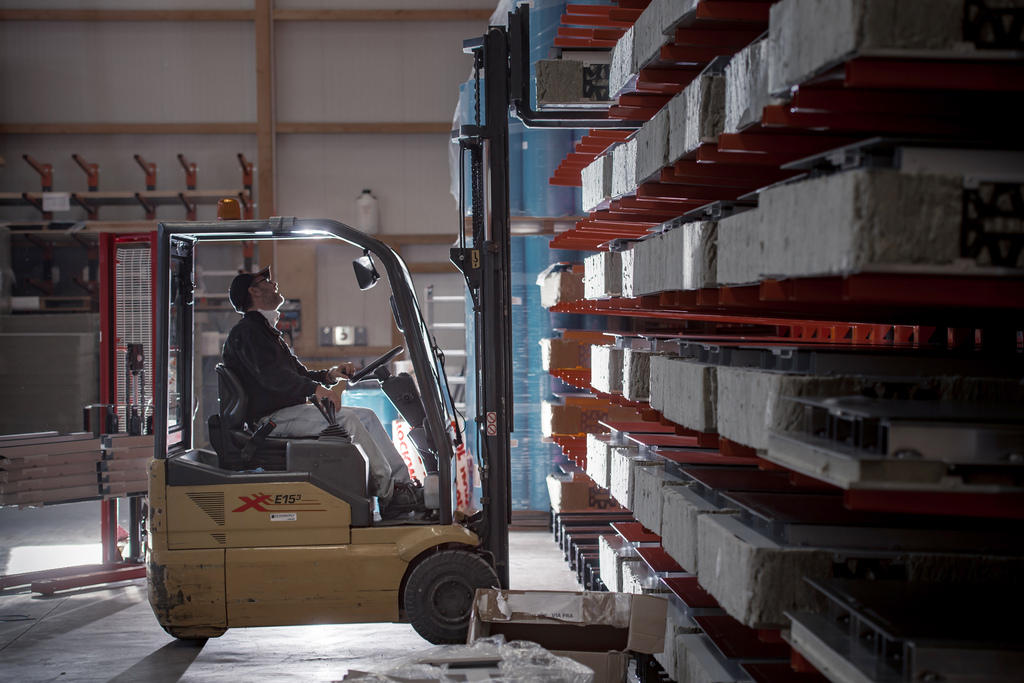How to do an apprenticeship when you are over 40

It’s still quite rare, but people can change career and start an apprenticeship in their 40s or 50s. Here’s the story of two who’ve done it, and the challenge for those who would like to.
It is not common to go back and do an apprenticeship after 20-30 years in the workforce. But it does happen: a report on Swiss public television SRF has highlighted two casesExternal link: a former glazier aged 50 who has almost completed his apprenticeship in building maintenance and a 45-year-old physiotherapist who is pursuing her dream of becoming a chef.
+ How the Swiss apprenticeship system works
Trainee chef Sabine Jermann says going back to school with 16-year-olds was a hard decision. “I am the exotic one at school but in the end I’ve got my goal. It’s three years, a half day a week, and I just love it,” she told SRF.
Challenges and advantages
Building maintenance apprentice Roger Boder is actually older than his teacher, Stefan Ulmann, responsible for his professional studies at the vocational school BBZ Solothurn-Grenchen. Ulmann said learning how to study and pass exams again was one of the key challenges for older students.
For her part, Jermann is taking financial losses into account, although she does earn a bit more than a 16-year-old apprentice. She considers her three years’ training, “an investment into my future”.
Her boss Sylvia Aebi said Jermann’s life experience was important in determining her apprentice’s wage, but it wasn’t enough to make her eligible for a qualified chef’s salary.
Aebi appreciates the concentration and independence of an older trainee like Jermann. “You always have to keep checking up on the young apprentices. Sabine gets good grades so we never have to check up on her,” Aebi said.
According to the State Secretariat for Education, Research and Innovation SERIExternal link, 269 people over 40 received a Swiss federal certificate or diploma for finishing regular apprenticeships in 2015. That’s less than 0.5% of the total.
Rarity
“It’s more common for 20-30 year olds to do a regular apprenticeship, perhaps up to age 35, and then it becomes very rare,” confirmed Marco Graf from the city of Zurich’s Careers CentreExternal link.
Indeed the statistics for 2015 put the number of VET diplomas and certificates for those aged 25-29 at 2,451.
One reason for doing an apprenticeship later in life, the careers advisor says, is that people want to do something completely different and to start again from the beginning.
But it is actually more common for someone with lot of work experience but no recognised qualification to rectify this. This does not need a full apprenticeship, Graf explained. There are three other ways: a shortened VET programme, direct access to the final examination (this needs five years of work experience) or to have your non-formal and informal learning validated, which is only available for a limited number of occupations.
Six-day week
Graf cites the example of one of his apprentices: a man working as a chef, doing the shortened VET programme to gain his professional qualification, which he hopes will help him up the career ladder. He goes to vocational school every Tuesday, but the downside is that he is still working five days a week in the restaurant. But this six-day week will just be for two years.
“He is lucky as his wife supports him,” Graf told swissinfo.ch. The man also receives his normal salary, rather than an apprentice’s pay, which is another advantage.
For older foreigners looking to break into the Swiss work market, their knowledge of German will also come into play when deciding whether to do an apprenticeship.
“For an apprenticeship you need B1 (intermediate) level so you can follow lessons at the professional school. I also look very carefully at what kind of experience and training someone has in their country of origin and what could be recognised here in Switzerland or with further training get a certificate. You have to carefully weigh up what’s best: sometimes it’s an apprenticeship with an apprentice’s salary, sometimes there are other ways,” Graf explained.
Overall, the apprenticeship, with its fixed structures and learning, is really conceived for 16-year olds, reminded Graf. “As soon as you are over 30 you are an exception.”

In compliance with the JTI standards
More: SWI swissinfo.ch certified by the Journalism Trust Initiative





You can find an overview of ongoing debates with our journalists here. Please join us!
If you want to start a conversation about a topic raised in this article or want to report factual errors, email us at english@swissinfo.ch.